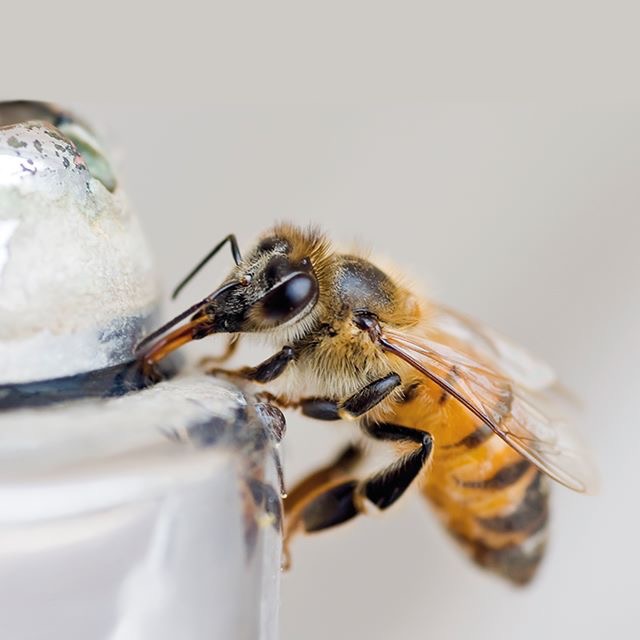Feeding honeybees plays a crucial role in maintaining a healthy, thriving colony. As more beekeepers adopt sustainable practices, there's growing interest in feeding honeybees naturally. Organic and alternative feeding methods offer benefits that support both bee health and environmental sustainability. In this guide, we’ll explore the importance of natural feeding, outline effective organic methods, and discuss alternatives that avoid synthetic chemicals.
It's also important to note that while feeding your bees naturally, proper beekeeping gear, such as beekeeping suits and beekeeping gloves, is essential for your protection. Handling bees during feeding or inspecting the hive can sometimes cause agitation, and wearing high-quality gear ensures your safety while maintaining a calm environment for the bees. Beekeeping suits and gloves provide protection from stings, enabling you to work closely with your hives as you implement natural feeding methods, keeping both you and your bees stress-free.
Why Choose Natural Feeding for Honeybees?
Natural feeding methods provide honeybees with the nutrients they need while avoiding harmful chemicals. Conventional feeding practices often include processed sugars or syrups with additives that can impact hive health. On the other hand, organic feeding promotes bee immunity, supports honey quality, and reduces environmental harm.
By choosing natural feeding, beekeepers also contribute to a healthier ecosystem. The less exposure bees have to artificial substances, the better they can thrive, pollinate, and produce high-quality honey.
Understanding Honeybees' Natural Diet
Honeybees rely on two primary sources for nutrition: nectar and pollen. Nectar provides carbohydrates, while pollen is rich in proteins, fats, vitamins, and minerals. A diverse, natural diet strengthens bee health, promoting longevity and boosting their immune systems.
However, as seasons change, the availability of these natural food sources may decrease. That’s when alternative feeding methods can help sustain colonies without compromising their health.
Organic Feeding Methods for Honeybees
Using Organic Honey
One of the best natural ways to feed honeybees is by offering them their own honey. Honey is their natural food, containing all the essential nutrients bees need. When food sources become scarce, returning their own honey to the hive is an excellent organic option.
Organic Sugar Syrups
If honey is not available, organic sugar syrup can be used as a substitute. It’s important to choose organic sugars that are free from harmful chemicals and additives. Mixing this with clean, pesticide-free water ensures that bees receive a safe, reliable food source.
Feeding honeybees with organic syrups is a common practice, especially in periods of dearth. However, it’s important to avoid over-reliance on sugar syrup, as it lacks some of the essential nutrients found in nectar and honey.
Alternative Natural Feeding Options
Herbal Supplements for Bee Health
Incorporating herbal supplements into bee feeding routines can help boost immunity and prevent diseases. Herbs like thyme and chamomile have antifungal and antibacterial properties that can support bee health. While these should not replace primary food sources, they can act as helpful additions.
Planting Bee-Friendly Flowers
One of the most effective natural feeding strategies is to provide bees with abundant forage. By planting a variety of nectar-rich and pollen-laden flowers, you can ensure that bees have a diverse and continuous source of food. Some popular choices include lavender, sunflowers, and clover. Encouraging natural foraging helps maintain a balanced diet for your bees and reduces the need for supplemental feeding.
Natural Pollen Patties
Pollen patties can be made using natural ingredients to supplement bees during times of pollen scarcity. These patties should be free of synthetic additives and made using organic or natural pollen. They provide a protein-rich food source that can sustain the colony, especially in early spring when foraging is limited.
Avoiding Common Mistakes in Natural Bee Feeding
Feeding bees naturally can be rewarding, but there are a few common pitfalls to avoid. One of the biggest mistakes is overfeeding, which can lead to overcrowded hives and honey with excess sugar content. Overfeeding also discourages bees from foraging, which is essential for a balanced diet.
Another important factor is timing. Feeding bees at the wrong time of year, such as during peak nectar flow, can cause disruptions in their natural food-gathering patterns. Always align supplemental feedings with seasonal needs, focusing on periods when natural food sources are low.
Sustainable Beekeeping Practices to Support Natural Feeding
Natural feeding isn’t just about what you give your bees; it’s also about creating an environment that supports their natural foraging habits. Keeping your bees in pesticide-free areas and promoting biodiversity by planting a variety of flowers will naturally support their health.
Additionally, working with local farmers to encourage bee-friendly practices can help expand the range of food sources available to your bees. The more diverse their foraging environment, the less you’ll need to rely on supplemental feeding.
Conclusion
Natural and organic feeding methods provide honeybees with the nutrients they need while protecting their health and the environment. By adopting these sustainable practices, beekeepers can ensure the long-term success of their colonies. Feeding honeybees naturally, with organic honey, sugar syrups, and plant-based alternatives, is a simple yet powerful way to enhance colony health, boost immunity, and produce better-quality honey.
In addition to natural feeding practices, using the right beekeeping tools is vital for hive management. Tools like hive scrapers, smokers, and feeders make it easier to maintain your hives and ensure proper feeding without disrupting the bees. With the right beekeeping tools, you can efficiently provide food, manage the colony’s health, and keep your bees calm during inspections.
For a thriving, sustainable beekeeping operation, it’s essential to prioritize natural feeding methods that work in harmony with the bees' instincts and the environment, while also equipping yourself with reliable beekeeping tools to facilitate smooth hive maintenance.










